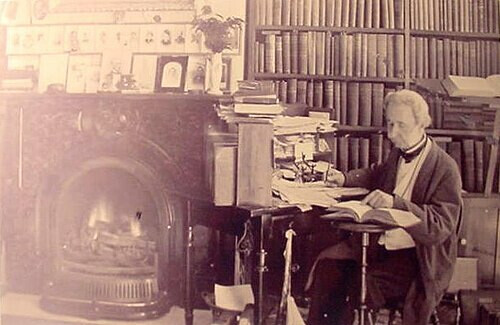Spiritual Connection: A Bridge Over Troubled Water
February 10, 2026

“Be especially careful when you are trying to be good so that you don’t make a performance out of it. It might be good theater, but the God who made you won’t be applauding. “When you do something for someone else, don’t call attention to yourself. You’ve seen them in action, I’m sure — ‘playactors’ I call them — treating prayer meetings and street corners alike as a stage, acting compassionate as long as someone is watching, playing to the crowds. They get applause, true, but that’s all they get. When you help someone out, don’t think about how it looks. Just do it — quietly and unobtrusively. That is the way your God, who conceived you in love, working behind the scenes, helps you out.”
~ Matthew 6:1-4 (The Message translation)
Unsung: Rev. Freeborn Garrettson
The word unsung can be defined as something or someone not celebrated or praised. We all know of people who are doing or have done amazing things in the world but have received very little credit or recognition. There are many people who fit this description throughout world history and there are many people who fit this description throughout Methodist history. We’ve all heard the names John and Charles Wesley, but there are many other important names in the history of Methodism you may not know. One such Methodist was the Rev. Freeborn Garrettson.
Rev. Garrettson was born August 15, 1752, on the west side of the Chesapeake Bay, at the mouth of the Susquehanna River in Maryland. The Garrettson family owned a large amount of land which included a farm, a general store, and a blacksmith shop. In the 1770s, Freeborn Garrettson heard the preachings of Methodists Robert Strawbridge and Joseph Pilmore. Their sermons awakened something in Garrettson, who became a pupil to Methodist superintendent Francis Asbury. The two became lifelong friends and Asbury approved of him becoming an itinerant preacher in 1776. Around the same time, Freeborn inherited his father’s estate and immediately set about freeing his family’s slaves. His journals clearly communicated his opposition to slavery.
Garrettson’s fearlessness was most apparent in his witness against the evils of slavery through his preaching. His anti-slavery sermons in Maryland would result in his being imprisoned at least once and they also had an incredible effect on those who heard them. Among those moved by Garrettson’s preaching was a Delaware planter named Stokeley Sturgis, who decided afterward to free his slaves. Among those emancipated was a self-educated young man named Richard Allen, the future founder of the African Methodist Episcopal Church.
In 1784, Garrettson was sent to Nova Scotia, Canada, as a missionary. Three years later, he returned to the United States to attend the General Conference held in Baltimore. There he was nominated to serve as bishop over Methodist missions in the Caribbean, but he turned down the honor. Instead, he settled in the town of Rhinebeck, New York, dividing his time between preaching locally and circuit riding across the state. Garrettson continued to attend General Conferences until the very end of his life. He often lent his support to petitions and efforts to make The Methodist Episcopal Church more democratic and give greater power to the laity. Garrettson died in his home on September 26, 1827, at the age of 73. Years earlier, he published a detailed journal of his early life, providing us with a thorough account of life and thoughts.
The work of Rev. Freeborn Garrettson continues to impact our society to this day. Think about the good deeds that you are doing “quietly and unobtrusively.” If you cannot think of anything, what is it that you can quietly do that could have a great impact on someone else?
February 10, 2026
February 03, 2026
January 27, 2026